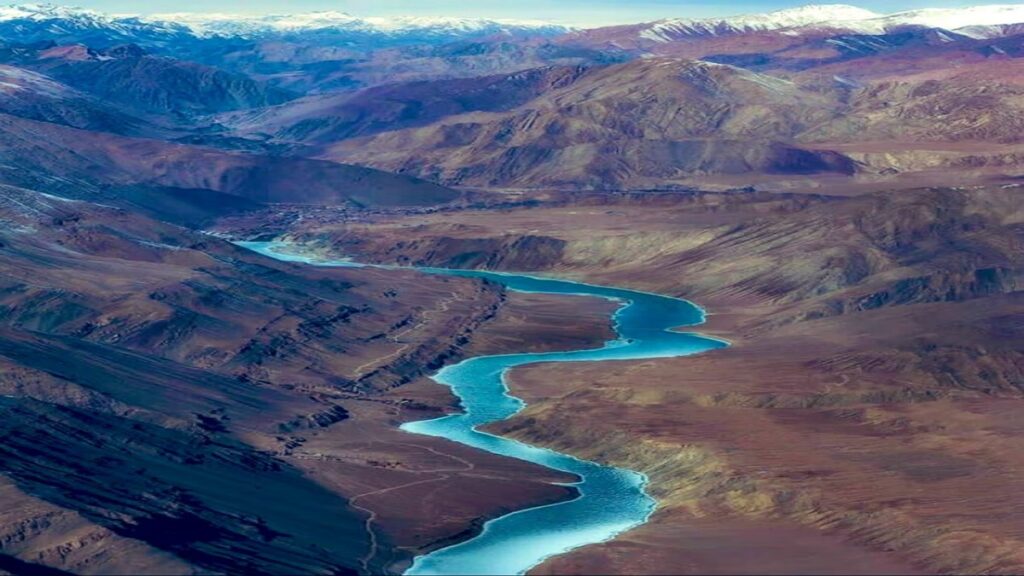Breaking Down India’s Suspension of the Indus Waters Treaty: Implications, Challenges, and Future Scenarios
India’s Suspension of the Indus Waters Treaty: A Turning Point in South Asia’s Geopolitical Landscape
In a bold and unprecedented move, the Government of India has announced the immediate suspension of the decades-old Indus Waters Treaty with Pakistan. This decision, taken during a high-level Cabinet Committee on Security (CCS) meeting chaired by Prime Minister Narendra Modi, follows the recent terrorist attack targeting tourists in Pahalgam, Jammu and Kashmir. As one of the most significant retaliatory measures against Islamabad, this step has sparked widespread debate about its implications for regional stability, water security, and India-Pakistan relations.
This article delves into the history of the Indus Waters Treaty, its significance, and the potential consequences of its suspension. We’ll also address key questions from readers and provide expert insights to ensure you’re fully informed about this critical geopolitical development.
Understanding the Indus Waters Treaty
The Indus Waters Treaty, signed in 1960 under the mediation of the World Bank, is widely regarded as one of the most successful water-sharing agreements in modern history. Here’s a quick overview:
- Signatories: Jawaharlal Nehru (then Prime Minister of India) and Field Marshal Mohammad Ayub Khan (then President of Pakistan).
- Purpose: To allocate the waters of the Indus River and its five tributaries—Jhelum, Chenab, Ravi, Beas, and Sutlej—between India and Pakistan.
- Key Provisions:
- India gained exclusive rights to the eastern rivers (Ravi, Beas, and Sutlej), which account for approximately 33 million acre-feet (MAF) of water.
- Pakistan was granted primary rights over the western rivers (Indus, Jhelum, and Chenab), totaling about 135 MAF.
- India, as the upstream country, retained limited use of the western rivers for non-consumptive purposes like hydroelectric power generation and irrigation.
To ensure cooperation and resolve disputes, the treaty established the Permanent Indus Commission, a bilateral body tasked with monitoring compliance and addressing grievances.
Why Did India Suspend the Indus Waters Treaty?
The suspension of the Indus Waters Treaty comes in response to escalating tensions between India and Pakistan. The recent terrorist attack in Pahalgam, which targeted Indian tourists, served as the tipping point. According to experts, the suspension is both a political statement and a strategic move to exert pressure on Pakistan.
Pradeep Kumar Saxena, a former Indian Indus Water Commissioner, explains that India now has several options as an upstream country. For instance:
- India may no longer need to consider objections raised by Pakistan regarding water projects on the western rivers.
- Restrictions on silt flushing from reservoirs could be lifted, allowing India to refill them at any time.
- Mandatory sharing of flood-related data with Pakistan could cease, impacting Pakistan’s ability to manage monsoon flooding.
These changes could significantly alter the dynamics of water management in the region.
Potential Implications of the Suspension
The suspension of the Indus Waters Treaty has far-reaching implications for both countries. Below, we explore the key areas affected:
Impact on Pakistan
- Water Shortage:
- Pakistan relies heavily on the western rivers for agriculture, drinking water, and hydroelectric power. Any disruption in water flow could lead to a severe crisis, threatening food security and livelihoods.
- Economic Decline:
- Agriculture contributes significantly to Pakistan’s economy. Reduced water availability could damage crops, reduce food production, and exacerbate electricity shortages, pushing the country into deeper economic turmoil.
- Rising Tensions:
- The treaty has long been a rare diplomatic success between India and Pakistan. Its suspension could escalate bilateral tensions and destabilize the region.
- Diplomatic and Legal Challenges:
- Pakistan may seek international mediation or involve the World Bank to address the issue. This could trigger a prolonged diplomatic standoff.
Benefits for India
- Strategic Leverage:
- By suspending the treaty, India gains significant leverage over Pakistan, particularly in terms of water resource management.
- Flood Control:
- India can store water on rivers like the Jhelum, aiding flood control in the Kashmir Valley.
- Infrastructure Development:
- With fewer restrictions, India can accelerate water projects in Jammu and Kashmir, boosting regional development.
Expert Insights and Analysis
To ensure credibility and trustworthiness, we’ve gathered insights from leading experts in water diplomacy and international law:
- Dr. Arun Swaminathan, Water Policy Expert: “While the suspension of the Indus Waters Treaty provides India with strategic advantages, it also risks triggering a humanitarian crisis in Pakistan. Diplomacy should remain a priority.”
- Prof. Rajiv Sinha, International Relations Specialist: “This move underscores the importance of water as a geopolitical tool. However, India must tread carefully to avoid alienating global allies.”
For further reading, check out these authoritative sources:
- World Bank’s Overview of the Indus Waters Treaty
- United Nations’ Guidelines on Transboundary Water Management
Frequently Asked Questions (FAQ)
Q1: What is the Indus Waters Treaty?
The Indus Waters Treaty is a water-sharing agreement signed in 1960 between India and Pakistan to allocate the waters of the Indus River and its tributaries.
Q2: Why did India suspend the treaty?
India suspended the treaty in response to the recent terrorist attack in Pahalgam, Jammu and Kashmir, as a retaliatory measure against Pakistan.
Q3: How will this affect Pakistan?
Pakistan could face water shortages, economic decline, and increased tensions with India due to the suspension of the treaty.
Q4: Can Pakistan take legal action?
Yes, Pakistan may seek international mediation or involve the World Bank to address the issue.
Q5: What are the benefits for India?
India gains strategic leverage, enhanced flood control capabilities, and greater flexibility in developing water infrastructure.
The suspension of the Indus Waters Treaty marks a turning point in India-Pakistan relations. While it offers India strategic advantages, it also raises concerns about regional stability and humanitarian impacts. Moving forward, diplomacy and dialogue will be crucial to resolving these complex issues.
What are your thoughts on India’s decision to suspend the Indus Waters Treaty? Do you think it will lead to lasting peace or further conflict? Share your comments below—we’d love to hear from you!
Also Read: Heartbreaking Tale of Newlyweds: Lt. Vinay Narwal’s Honeymoon Turns Into a National Tragedy

